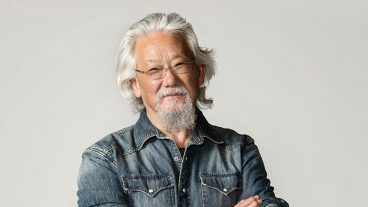First Gwyneth Paltrow, now COVID-19. Famed debunker Timothy Caulfield is taking on the “infodemic” created in the wake of the global pandemic. “This is misinformation on steroids,” Timothy told The Toronto Star.
Timothy and his team received a grant of more than $380,000 from Alberta Innovates and the Canadian Institutes of Health Research to track misinformation and conspiracy theories surrounding the pandemic. Although Timothy has been tracking the spread of pseudoscience for years, he says he’s shocked at the speed of which coronavirus misinformation is spreading today.
Previously, governments and the media were the gatekeepers when it came to sharing public health information, but with this being the first pandemic to take place in the era of social media, those lines have become blurred.
“With the coronavirus, what we’re seeing is those concerns I’ve been following for decades really amplified,” Timothy said. “Even I’ve been astounded to the degree to which misinformation in this context is spread and the impact it’s had.
“Here, it’s been ramped up very quickly, and on an international scale, and at the worst possible time.”
There is hope though, Timothy said, as there’s evidence that people are fairly good at discerning fake information. He hopes that one of the legacies of this pandemic is that we remember the value of good science and trusted voices, as well as the potential life-threatening harm that comes from misinformation.
Here are just seven of the COVID-19 myths that Timothy has debunked so far in a Toronto Star article, and we thank him for stopping the spread of misinformation!
1) Hydroxychloroquine
The interest in this drug — including by the President of the United States (sigh) — is largely based on the reporting of one, small, methodologically flawed study. It has led to the hoarding and misuse of the drug. At this point, we don’t have the good, clinical data, to support its use. This controversy is a good example of why it is important to report and interpret the emerging science very carefully.
2) Drinking Bleach
This science-free and dangerous idea has been lurking around on social media for a while. It has, for example, been marketed as a “cure” for autism. It became part of the coronavirus early on largely because people like the conspiracy-loving followers of the far-right QAnon movement pushed it. Many of them also believe that COVID-19 is a hoax. (Still? You guys, still believe this?) While this may seem kooky and — needless to say — a terrible idea from a health perspective, the mere fact that we know about it shows how fringe ideas can work their way into broader public discourse.
3) Garlic Soup
OK, this one feels more plausible. And garlic is so good! There is also some research that seems to suggest that garlic can help with flu and respiratory infections. In fact, the research remains weak and some of it is in vitro (that is, lab research that doesn’t involve actual humans). Be skeptical. Indeed, this one is so popular the World Health Organization recently dealt with this specific myth, noting: “There is no evidence from the current outbreak that eating garlic has protected people from the new coronavirus.” Still, garlic is healthy!
4) Drinking Silver
This bunk remedy has also been around for a while. It is a classic quack cure-all that has been peddled for every conceivable ailment. There is no evidence to support its use for anything and it may even be harmful. Recently, the U.S. Federal Trade Commission and the State of Missouri took legal action against televangelist Jim Bakker for selling his “Silver Solution” as a cure for COVID-19.
5) Snorting Cocaine
Let’s just say, um, nope. Not a good idea. Snorting cocaine will not cure or prevent COVID-19. Incredibly, the French government had to go so far as to tweet out a warning that “No, cocaine does NOT protect against COVID-19.”
6) Homeopathy
This is one of the most popular alternative remedies. (Homeopathy is a medical practice based on the idea that the body has the ability to heal itself and that “like cures like.” That is, if a substance causes a symptom in a healthy person, giving the person a very small amount of the same substance may cure the illness.) There is, however, no evidence homeopathy works or could work. It is, in fact, completely scientifically implausible. Despite this reality, the Indian government proposed the use of homeopathy, which was developed in Germany in the late 18th century, as a possible preventative strategy for the coronavirus. The proposal was widely condemned and the government was forced to do a U-turn.
7) Drinking cow urine
Nope.
Professor Timothy Caulfield is an unrivalled communicator who debunks myths and assumptions about innovation in the health sector — from research on stem cells to diets to alternative medicine — for the benefit of the public and decision-makers.
The host of Netflix’s popular docu-series, A User’s Guide to Cheating Death, Timothy is also a Canada Research Chair in health law and policy, a professor in the Faculty of Law and the School of Public Health, and a research director of the Health Law Institute at the University of Alberta.




